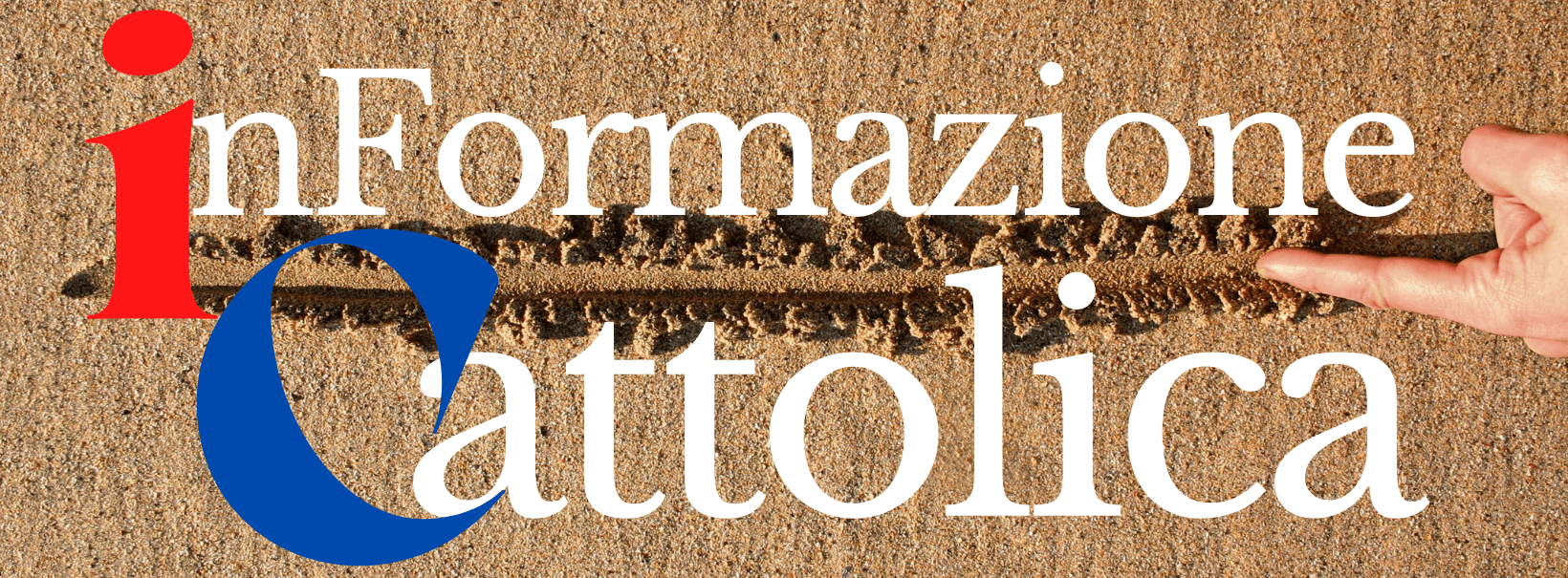Report on the social doctrine of the church in the world 2012. introductory synthesis
Flavio Felice, Stefano Fontana, Fernando Fuentes Alcantara, Daniel Passaniti, Manuel Ugarte Cornejo (*)
This phenomenon is spreading on a vast scale also as a result of the immense resources invested in it and the militant mobilization of the mass media. In addition, its concrete facets can be seen in the way it undermines social bonds, functionally fragments relations into bits and pieces, heightens disincarnated individualism and strives to remould social relations no longer on the basis of human nature, but rather on the basis of individual and self-referential yearnings.
It would suffice to consider the case of Argentina, which we illustrate in the Five Continents section. In the course of one year alone, 2011 in fact, added to the legislation of that great nation of Christian tradition were the following parliamentary acts: a law on artificial procreation, which attacked the selfsame nature of procreation; a law on the recognition of “gender identity”, which sapped the selfsame nature of the family; a change in the Code of Civil Law to permit “the uterus for rent”, which sabotaged the selfsame nature of parenthood.
Some of the bills in question actually became law early in 2012, but had been drafted and discussed the year before. Some are still on the agenda of one branch of Parliament after having been approved by the other branch, but the trend is crystal clear. In the space of a single year the foundation of Argentinean society at large has been revolutionized, the notion of “human nature” has been discarded, and the inspiration of the Catholic Faith for the construction of society has been shunted aside.
Mistaken would be those who might consider the issues of procreation and family as sectoral in nature. They have a constituent and structuring influence on society as a whole, and hence the new Argentinean laws will quite literally dismantle society as we know it today in order to construct a completely different one. It is by no means a question of mere adjustments.
Argentina had imported from Spain the Christian vision of the individual and life, and Argentineans have always sustained that this legacy is part and parcel of their identity as nation. At present, however, Argentina is in the process of importing exactly the contrary from secularised Spain, that is to say a clear refusal of a moral and religious life with the imprint of created nature and the Catholic faith in exchange for a radical libertarian outlook whereby nature is set against culture and liberty is understood as emancipation from nature.
Behind such laws now assaulting both Latin American and other countries (in the Philippines the Church is engaged in a stiff battle against the law on contraception, which is but the incipit of the new post-natural approach to procreation and the family) with quite disquieting velocity and violence is an ideology, the ideology of gender, hand in hand with vast economic resources invested by international lobbies and political support on the part of individual countries and international organization: the EU is the main financer of abortion in the world and the agencies of the United Nations are hyper active as the channel for these anti-nature and anti-family ideologies. This also poses a very serious question as regards the usefulness and sustainability of these organizations.
This is the reason why our Fourth Report dedicated its study on the “problem of the year” to the ideology of gender, and allocated pride of place as the teaching of the year to the speech delivered by the Holy Father at the Reichstag in Berlin on 22 September 2011, when he proposed anew the doctrine of natural moral law as the base and foundation of political power.
This is the reason why our Fourth Report dedicated its study on the “problem of the year” to the ideology of gender, and allocated pride of place as the teaching of the year to the speech delivered by the Holy Father at the Reichstag in Berlin on 22 September 2011, when he proposed anew the doctrine of natural moral law as the base and foundation of political power.
The ideology of gender encountered little or no opposition as it spread in advanced countries and is by now also being taught in textbooks used in public schools without giving rise to very much in the way of protest. It is now being exported to emerging and poor countries in a systematic way. It is a subtle and pervasive ideology which evokes the “individual rights” that the western world uplifted to the level of dogma, and a presumed equality among asexual or abstract individuals in order to lead the way to a dismantling of the entire structuring of society.
If sexuality understood as behavior and not sex understood as an anthropological datum is at the origin of social relations, then they are “chosen” by us and not “given” to us. Underlying everything would be abstract individuals who later in life would choose their sexual orientation without any reference to their natural datum or state. It would be a question of the discrimination of heterosexuality, or sexual difference, and the cultural imposition of transsexuality, or sexual indifference.
It would come down to a absolute dominion of techniques over human relations. Techniques have made it possible to emancipate culture from nature, and hence have made it possible to be a mommy without being a woman, a daddy without being a man, a man while still being a woman, a woman while still being a man, a father or mother without knowing of whom, and a child without knowing of which father or mother.
Rendered therefore possible is denatured sexuality, and hence sexuality as a mere technical exercise on the part of a being bereft of identity. Forging ahead in society is not the absolutization of sex, but the absolutization of sexuality and the shunting aside of sex, something talked about nowadays almost only by the Catholic Church.
The ideology of gender is a new colonialism of the rest of the world by the west. Among the many negative aspects of the old colonialism there were also heroic features, and it was driven by the desire to export something meaningful. This new western colonialism is the exportation of nothingness.
Abstract and asexual individuals are in fact identity-less, except for the identity they arbitrarily assign to themselves. In their quest to divest themselves of any and all natural characteristics, shirking sexual or pro-identity education, they postpone this their identity to future choices and future contacts with other individuals, becoming subservient to the worst of conditioning factors: nothingness.
The new ideology of gender imbues all aspects of society and remoulds it on unnatural bases. Inevitably following hard on the heels of the recognition of de facto couples and same sex unions in countries is the reform of family law, fiscal law, and the aims and methods of educational structures.
The fact of it being impossible to morally condemn homosexuality in order to avoid the risk of being accused of homophobia compromises the free expression of ideas and the education of children, and raises the problem of the projecting the heterosexual family as the model family. The “new families” are championed by the mass media with no possibility of frank debate because this is the one and only prevailing school of thought.
Public authorities abdicate their role to safeguard the public morality of society. By abstaining from fostering a vision linked to natural moral law in these constituent fields, limiting themselves to registering the desiderata of citizens and turning them into rights, and accepting a complete pluralism of ethical behavior, public authorities withdraw from ethics and are then unable to restore that dimension in other areas of social life because it has disappeared from the fundamental spheres of that life.
If relations are technical and individualistic alone in the field of procreation and family, if the complementarity and unity of differences do not come to be in the man-woman encounter, how can they ever come to be in other human relations?
The seriousness of the situation is not widely perceived and the active proponents of the Social Doctrine of the Church at all levels pursue other issues, which certainly are not to be underestimated, but they do not concentrate on this essential challenge. Essential because it de-structures essential elements and transforms society into a series of functional roles regulated by contracted procedures. If being a man or a woman is only a function assumed by personal volition, all the other dimensions of society will become functions to be assumed as a result of personal volition, But a society without duties cannot survive.
The subversion being perpetrated by these new theories also concerns Catholicism. We considered above the example of Argentina, an outstanding country of Christian tradition. The demolition of the concept of human nature and its colonialization by a form of post-natural thought may initially seem focused against nature itself, but a closer and deeper assessment of the situation reveals how they are opposed to the Christian religion.
The abolition of the natural family by law prevents people from living the experience of family. In fact, living the experience of family has a social function insofar as it is the fundamental apprenticeship of life in society, but it also has a religious function insofar as the entire vocabulary of Christian life is a “family” lexicon, and whomsoever does not know what Father, Mother, Child, Bride and Spouse mean, cannot understand Christian revelation.
Not living the experience of the natural family destroys society, and above all destroys the Church. In Argentina, as in many other countries, people want Christianity to just disappear, depriving it of the natural conditions for being known and understood.
The process of parting from nature embarked upon by laws that de-structure sexed procreation and the natural family is based on an erroneous conception of nature to which only a cultural battle up to the challenge can respond. Nature is understood here as a mere biological datum. It is therefore considered according to the positivistic and materialistic perspective.
Taken as such, the mere biological datum cannot express a form and be the source of identity. It is simply a phenomenon consequent to a chain of deterministic causalities. Nature, however, also as another meaning, and access to this meaning entails the use of non positivistic rationality. Sexed identity, which also has an ineluctable material basis, is not limited to that basis but expresses a form of being person.
Since we are incarnate forms, being man and being women cannot help but be expressed in physiological terms, but cannot be reduced to physiological aspects alone. This dimension emerges from a metaphysical vision of the person as such. We therefore understand that the active proponents of the Social Doctrine of the Church cannot overlook this dimension of the cultural debate. Bending the Social Doctrine of the Church to the level of the social sciences alone is not enough for waging this battle against the colonialization of the human person.
All these subjects and issues officially entered the Social Doctrine of the Church with the Caritas in veritate of Benedict XVI. The attention of those active in the Church’s social doctrine, however, is still mostly concentrated on more traditional social issues.
The Christian people at large are still far from well informed about these challenges. It is difficult to rally widespread militancy against trends such as these. Felt is the need for a strategic change that would revisit priorities. In fact, themes such as these condition all the others. This is the reason why published in the section “statement of the year” is an article by Most Rev. Crepaldi on the so-called “non negotiable principles”, which are of strategic value precisely in waging battle against the new and radical ideologies of gender and the destruction of the family.
Far from being values alone, these are principles, these are lights guiding the way. The active proponents of the Social Doctrine of the Church should take them on as priorities in no uncertain terms. They should deal with them not only as sectoral arguments, but as beacons shedding light on social togetherness as such. They should promote them and mobilize consciences to respect for them and to the non violent battle against those who wish to eliminate them.
These our words may give the impression that the future of the Christian faith depends on the resilience of the natural dimension in procreation, as well as in the ensuing family and culture. In all truth, however, exactly the contrary is true: it is the future of the natural dimension of human good that depends on the Christian faith. When men take their distance from Christ they also lose sight of their authentic good on the natural level.
This is the reason why the commitment must certainly be cultural, legislative and political so procreation, the family and the welcoming of life are not reduced to functions but rather looked upon as expression of the beinghood of the person in the intrinsic complementarity of male and female, but without being under the illusion that this may become possible without a deep life of faith and without a new religious missionary thrust, which today is customarily referred to as new evangelisation.
____________________
International Observatory Cardinal Van Thuân for the Social Doctrine of the Church, Rapporto sulla Dottrina sociale nel Mondo 2012 [Report on the Social Doctrine of the Church in the World 2012], Edizioni Cantagalli, Siena 2012
(*) Flavio Felice, Director of the “Caritas in Veritate” International Research Office of the Pontifical Lateran University, Rome.
Stefano Fontana, Director of the International Observatory Cardinal Van Thuân on the Social Doctrine of the Church, Trieste.
Fernando Fuentes Alcantara, Director of the Paul VI Foundation, Madrid.
Daniel Passaniti, Executive Director, CIES-Fundación Aletheia, Buenos Aires
Manuel Ugarte Cornejo, Director of the Center of Catholic Social Thought, University of San Pablo di Arequipa, Peru.





